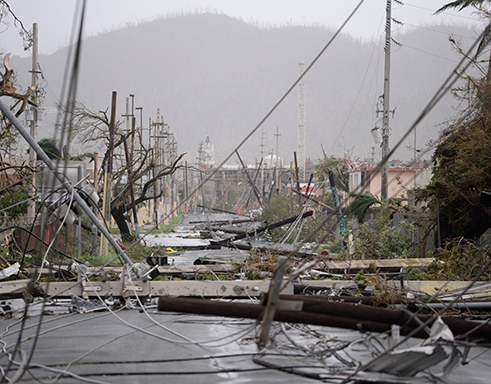TODAY is World Environment Day. We’re also into the month of June, marking the beginning of the annual ‘Bad Weather’ Hurricane Season.
The normal reminders are going out and the national emergency entities are activating themselves for the unseen and the unknown, praying for the best while planning for the worse.
Ditto those volunteers charged with always being ready to render emergency assistance by way of collection, distribution and even shipment of needed supplies (where necessary) to victims of tragic and tumultuous weather systems at home and abroad.
Every Caribbean island and resident has their own story of hurricane destruction and survival, of lives more than once brought to unforgettable standstills.
The region has over the past five decades developed numerous related hurricane response mechanisms. Regional institutions have adjusted their organisational and administrative structures to better address the consequential hardships caused to people and property.
The Caribbean Development Bank (CDB) has long fast-tracked its processes for considering and responding to applications for immediate post-hurricane emergency assistance. CACRIP, the related regional insurance entity, is gaining commendations for how it’s implementing its mandate.
All of this is absolutely positive. But even so, there’s also the constant need to ensure positive adjustments are also active and not only reactive. Our region has become good at responding to the effects of expected annual hurricanes — which we must. But to what extent have we started to take the actions that can, should and will reduce or eliminate the elements of danger and the effects of the inescapable and unpredictable annual bad weather systems?
Much has also been said about lessons to be learned from Maria and Irma – from Puerto Rico where the number of people who died as a result was grossly and institutionally understated, to the island of Barbuda where every rooftop was blown away by high winds and the entire population had to be evacuated to mainland Antigua.
Caribbean governments and regional entities annually hit the road to mount the world stage in different places to make similar appeals for emergency assistance for new and old causes. But in most cases, the rate of response continues to be slower than necessary.
However, while most Caribbean nations affected are still reeling under pressure from the destructive effects of Maria and Irma, at least one of the most affected is turning its tragic circumstances into an opportunity to take the proverbial bull by the horn and confront the annual hurricane problem in an innovative way.
The Dominica government has stated it intends to make the rugged and mountainous island of 365 rivers the Caribbean’s – and possibly the world’s — first Climate Resilient Nation. Soon after its veritable slaughter by Maria and Irma, the island’s government also supported moves to ensure every new home to be rebuilt is not only done according to climate-resilient plans, but is also properly insured.
Dominica has boldly moved from hurricane victim to climate resistance pioneer and therefore deserves not just quiet applause but loud support – and encouragement.
Meanwhile, Saint Lucia and other Caribbean islands in this global hurricane hell-hole need not wait to see the results in Dominica before also deciding to break with the past and grab new approaches to worsening old problems.
Traditional allies have long become wary and weary, if not resistant and immune to annual appeals for assistance from developing nations. As a result, pledges of support are decreasing in size and related delivery deadlines are increasingly not being met.
It is also against this background that these decisive Dominica decisions must be both applauded and emulated – and what better day to start than on World Environment Day?.













